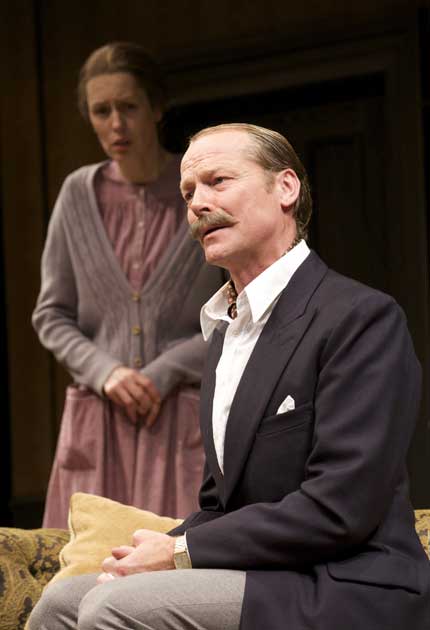Separate Tables, Festival Theatre, Chichester
Dreary outlook by the seaside

Your support helps us to tell the story
From reproductive rights to climate change to Big Tech, The Independent is on the ground when the story is developing. Whether it's investigating the financials of Elon Musk's pro-Trump PAC or producing our latest documentary, 'The A Word', which shines a light on the American women fighting for reproductive rights, we know how important it is to parse out the facts from the messaging.
At such a critical moment in US history, we need reporters on the ground. Your donation allows us to keep sending journalists to speak to both sides of the story.
The Independent is trusted by Americans across the entire political spectrum. And unlike many other quality news outlets, we choose not to lock Americans out of our reporting and analysis with paywalls. We believe quality journalism should be available to everyone, paid for by those who can afford it.
Your support makes all the difference.In the second act of Separate Tables, as most of us know it, the residents of Terence Rattigan’s seaside hotel are shocked when one of them, a retired major, is arrested for touching up women in the local cinema. Philip Franks’ production, however, uses a version that was censored in 1954 – in it, the major has been importuning men. It would be nice to think this change a triumph of honesty and compassion, but, even without the mainly smug and overemphatic performances that demand this response, I wasn’t convinced.
For, while the gay major merely makes propositions, the straight one actually gropes unwilling women. The female guests who decide not to shun the latter are, it could be argued, making more of an effort to conquer their disgust than those who forgive a few indiscreet words they haven’t heard. But, apart from the comparison, the story now sounds meretricious. This major says he hoped a woman might love him, then sobs that he can’t help the way he was made. When he considers visiting a friend of the same persuasion, his timid admirer, Sybil, begs the major (who is 55) not to consider such a frightful thing.A poser, the major is told that if he is truthful about his identity, people will still like him – but it’s clear that he will have to pretend an extremely important part of his identity doesn’t exist.
With Iain Glen carrying on like C. Aubrey Smith’s lost twin and Gina McKee knock-kneed and gormless in wrinkled cotton stockings and madwoman-in-the-attic wig, the whole business is as phony as it is antique. There is sensitive and restrainedacting from John Nettleton and Josephine Tewson as the major’s reluctant supporters, and Stephanie Cole, as his chief persecutor, skillfully avoids making a stereotype into a caricature.
In the first act, McKee is a glamourpuss in low-cut satin and diamonds, but her character is, like Sybil, terrified of sex and of being alone. Glen this time is her alcoholic ex-husband who, having been locked out of her bedroom for too long, broke the door down in a rage. (What kept him from starting something in the drawing room?) This story, about a man who is obsessed with a beautiful but cold woman, and is contemptuous but overjoyed when she starts losing her looks and desperatelyneeds him – sounds implausible and as homosexual as the other. Despite Glen saying that he and McKee are “like two chemicals that, when brought together, create an explosion,” their dull, damp pairing couldn’t be more lacking in chemistry.
Above the hotel, Franks has mounted a weather report – a widescreen film of sea and sky. When Glen angrily slams the hotel door behind him, do we really need rain pounding on the waves to convey that he storms out?
Join our commenting forum
Join thought-provoking conversations, follow other Independent readers and see their replies
Comments